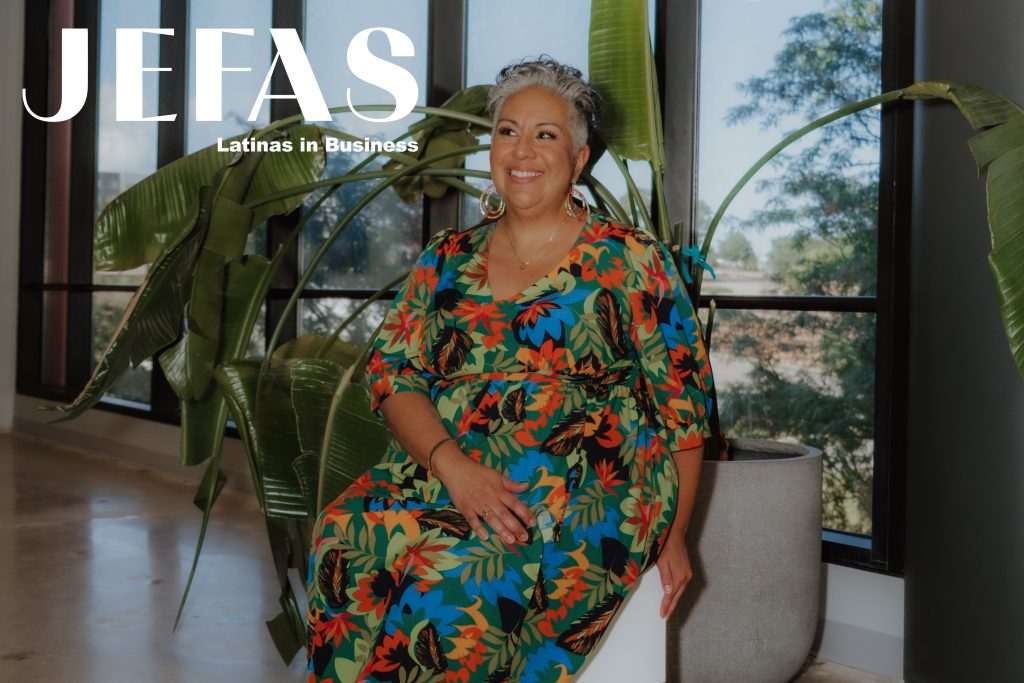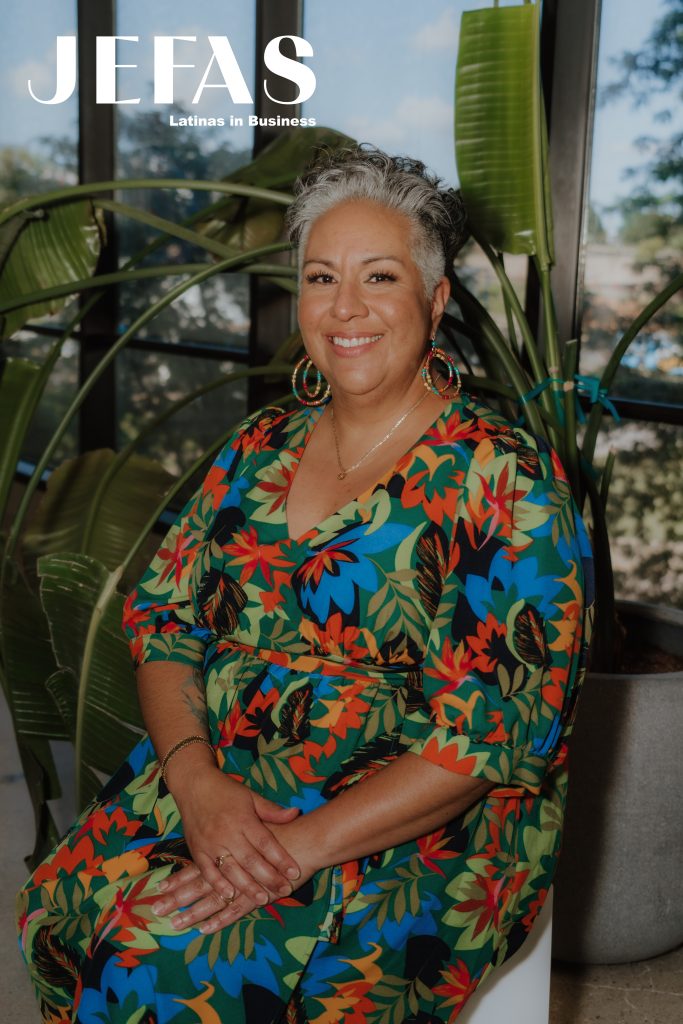A Bilingual Therapist Turns Trauma to Triumph in her Practice

Antonia Valadez, bilingual therapist. Photo by Jennifer Marquez, JEFAS Magazine.
By Christina Fernández-Morrow, JEFAS Magazine
Antonia Valadez spent years attuned to those around her; first as a survival strategy in an abusive marriage, now as one of the few bilingual and bicultural therapists in the Des Moines metro area. Valadez draws from lessons gained through her personal trauma to provide culturally informed care, demonstrating that sometimes our deepest wounds lead to our greatest victories.
From an early age, Valadez was reading the room. With no siblings and surrounded by adults most of the time, she learned to pay attention. “It was really important as an only child to know the mood of the people that were around me to know how to navigate that situation,” she recalls of her childhood. “If you know how people work, you know how to approach, when to approach, and in what way to approach.” It’s no wonder she pursued an undergraduate degree in psychology. “It was about understanding people. I’m a very curious person,” she says of her early days doing social work.
While the work was fulfilling, Valadez quickly realized that it would not afford her the income or time she needed to raise her family. She also knew she needed more than a bachelor’s degree if she wanted to escape a dangerous marriage. This realization propelled her back to school, determined to build a safer future for herself and her sons.
The Need for Bilingual Mental Health Care
She chose a master’s in mental health therapy because she also recognized the need for bilingual therapists is severe in Des Moines, where Latinos are nearly 16% of the population but face significant barriers to mental health care. Language barriers, cultural stigma, and a shortage of Spanish-speaking providers compound the problem.
It took years to complete her degree as she prepared to build a new life for herself and her sons, while working a variety of jobs. “It’s really hard to leave and if one has not been in such a situation. It’s easy to say, well just leave,” she shares. “But there are so many factors to consider.” She describes the financial, emotional, and logistical challenges involved. Where will I go? Can I bring my teenage son to a woman’s shelter? Will I be safer in an alternate living arrangement? Are there services to help me rebuild if I leave everything behind? What will happen to my elder parent I care for if I leave?
Those types of questions weighed on Valadez as she prepared to escape her marriage. It took years to gather the courage, strength and resources to file for divorce and start over again. There were sacrifices and countless nights of sleeplessness wondering if she and her boys would be OK. She learned that no one can operate on someone else’s timeline, no matter how dire the circumstances. Valadez intimately understands the importance of timing when seeking help. “It can’t be an obligation,” she says.
These hard-won lessons now inform her approach to therapy in her practice, Antonia Valadez, LLC in Urbandale, Iowa. It’s not about her telling anyone how to live their life. “I ask, ‘how can we do this together, collaboratively?’”
With Latino clients, she often highlights capabilities. “I emphasize the positives because our culture focuses a lot on our deficits,” she says. “Everybody has dreams, and I help people realize their strengths to create relationships where they feel comfortable and understood versus judged.”
Healing Trauma and Breaking Cycles
Her practice centers on trauma, times when a person is harmed by actions, words, behaviors and manipulation – not necessarily a tragic incident or violence. What she sees repeatedly is the impact of intergenerational trauma. “It’s a double-edged sword when your parents didn’t have the skills to give you because they were in trauma and mental health was not a thing.” She describes how cycles of pain manifest. “People with no coping skills hit, yell, scream, create drama because it’s the only way they know how to meet their needs.” But she sees hope where others may only see despair. “I firmly believe that if those people had the capacity to do something different, they would.” That’s where her services come in. She uses a variety of modalities to teach skills and techniques to handle stress and triggers in healthy ways.

Antonia Valadez, bilingual therapist. Photo by Jennifer Marquez, JEFAS Magazine.
Empowering Clients and Building Community
Trained in EMDR and Brainspotting, she combines these mind-body trauma treatments with the more commonly known, Cognitive Behavioral Therapy that uses more talking. “I have the tools to serve a wide variety of clients, including BIPOC, LGBTQ. My most important goal is to provide culturally and trauma-informed mental health care that takes into consideration the full well-being of my clients.”
With her therapy dog Petunia often playing at her feet while she balances paperwork, billing insurance and marketing her business, the scene is a quiet contrast to the chaos she once endured. Valadez embodies the journey from survivor to healer. She showed her sons that even in their darkest hours they could choose healthier outcomes. Now she does the same for her clients, arming them with the tools to turn their struggles into strength.


